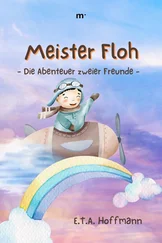“A kid dropped by with all this,” I told her. “Junior or Brent, I suppose.”
She raised an eyebrow, then opened and read the note. Without hesitation she opened the cabinet door under the sink and began dumping the contents of the plate into the trash.
“Whoa, hey,” I snapped at her. “Hold on. I think it was pretty nice of her, don’t you? Did you read that note at all?”
“Sure I did.”
She kept shoveling cookies into the trash. The plate was much too large for her to maneuver into the space, and the beagles snuffled around eagerly, gulping down cookies that missed the trash can. I slid around her and slammed the cabinet door shut, and she stood up straight to cast a dark glare on me. Her shoulders were as wide as Cade’s. Her long curly hair fanned behind them like a cape. I lifted my chin and held her gaze, willing myself not to let her call my bluff.
Leela came around the landing and into the kitchen. “What’s the—oh, my. Candy?”
I could feel Candy’s breath against my forehead. “Randy Olmstead’s family brought by some cookies,” I explained. “Candy’s not happy about it.”
For a long moment Leela said nothing. Then she said, “Well, Candy, if Jill wants the cookies, let her have ’em.”
“Mom,” I said, and both Candy and Leela looked at me in surprise. It had just been the word that came out of my mouth, and it surprised me, too, but I didn’t betray that. “They sent over a nice note and said they want to help if they can. There’s no need to be petty about it.”
“Can’t imagine the moment when we’d ever need their kind of help,” said Candy. “Somebody’d have to be dead or dying for those people ever to cross this threshold.”
“Somebody did die,” I pointed out. “Maybe it’s time to reconsider, then, huh?”
“Not on my watch.”
I looked to Leela, who shrugged. A wave of frustration rippled through me, and I wished for Cade to be there so he could talk some sense into these people. He didn’t seem to bear his uncle’s family any particular ill will. But he wasn’t home, and if I had learned one thing by living there so far, it was that Cade’s family held a kind of sway over him that dwarfed his otherwise strong will. I wouldn’t be wise to test it.
Instead, I wrote a thank-you note to Randy’s family and put it in the mail the next day. I signed only my own name to it, but it was something, at least. A declaration that I was above the rest of the family’s squabbling. It felt good to write it—liberating—and it seemed like the reasonable, sane thing to do in the face of Candy’s erratic behavior and Leela’s stony silence. Sanity seemed like an especially valuable thing right now, one I ought to store away in case of a family shortage, like evaporated milk or Potato Pearls.
* * *
The ax broke. That was the problem that led me into the shed that day. It was a frigid morning and I couldn’t get warm; the furnace, I suspected, was failing, doing little more than blowing around the air heated by the living-room fireplace. For a long time I sat in front of the fire, watching TJ bat around toys on his play mat rigged with arches that suspended his rattles above his head. Since the night before, he had been tugging at his ear, the now-familiar sign of an impending ear infection. Not again, I’d thought with a sense of dread, and nursed him twice as often in an effort to clear all the fragile little passageways. But the chances that would work were slim, and I knew now. I pulled the cuffs of my sweater over my hands and held my fingertips to the flames until they began to die down, and then I decided, for TJ’s sake and mine, we needed more wood.
Winter had been colder than expected and, where the woodpile was concerned, we were down to the bottom third of the cord, which Cade had not split properly. Such had been the theme of the past five months: chores were done carelessly, the remnants of tasks often trailing into the next day or week, as we found ourselves too distractible or disheartened to summon a good work ethic. Cade had it the worst of all. In November he had given away the two remaining cows to the Vogels, unable to continue venturing into the barn to milk them twice a day. Now he slept in until seven each morning, but he wasn’t any better rested for it. Often when I awoke to nurse TJ I found his side of the bed empty, and it worried me awfully, this evidence that his sense of work and routines and clear paths through the madness was faltering. If only he could run, he’d be all right, I thought, but you can’t run in New Hampshire in the winter. All you can do is stay put and try to stay warm. He’d been using the shed as his getaway place, the cave where he could retreat from the rest of us and maybe find a few moments of peace.
Laying TJ in the playpen, safely out of licking range of the beagles, I strapped on my boots and ventured out into the deep snow intent on splitting just enough wood to get us through Cade’s workday. I found the ax and wedge embedded in a section of tree sitting on a larger stump, all powdered with snow, and I cursed quietly. Cade was the worst in the world at putting away tools. When I tried to jerk the ax from the wood, the handle rattled in the fitting and then pulled out, leaving the ax head where Cade had left it.
“Winter and tools, Cade,” I muttered. “They don’t mix.”
I sighed. My breath whirled into the air like white smoke. I shoved my jeans deeper into my boots and began the trek through the snow to the shed. Dodge had conscientiously shoveled paths from his house to both main house and shed, forming two sides of a triangle, and so I headed toward the space he had cleared. Once at the shed I shoved its sliding door open and faced the mess Cade had left behind. At least the tools he neglected to put away indoors wouldn’t be damaged by the weather, but the place was still a disaster. In the center of the room was an enormous worktable littered with saws, hammers, boxes of nails, pliers in all sizes, rolls of tape and crumpled bags of barbecue-flavor potato chips. Beer cans were stacked in a short pyramid at one end, as though he’d had the idea to build a wall of them, frat-party style, but lacked enough material.
The walls were covered with nails and braces for hanging all sorts of tools, but there was no ax to be found. I did a cursory survey of the buckets clustered on the floor, then began sliding out boxes from the shelf suspended beneath the worktable. The first held a jumble of old drill batteries, the second a few half-filled cans of paint. Losing hope, I pulled out the last box in the row. Inside it were six lengths of thick metal pipe, neatly stacked.
There was something oddly tidy and uniform about the pipes—it didn’t fit with the mess of the rest of the shed. I lifted out one of them—nearly a foot long and heavier than expected, pinched closed on each end, with a length of wiry cord protruding—and turned it over. It sort of looks like a bomb, I thought. And then it dawned on me: It is.
I controlled the impulse to drop it and bolt from the shed. Softly now. I set it back in with the others, then eased the box back onto the shelf before hurrying outside, leaving the door ajar and the latch swinging on its hinge. From the henhouse came the fluttery sounds of the birds, their gentle clucking conversations. The sky was hidden beneath a thick cataract of white clouds. Squinting at the haze of light that filtered past them, I peered up at the top floor of the house—those four neat windows high above the back-porch roof, the rusted grate of the attic fan disturbing their symmetry. Somewhere up there, Leela worked. She was the one I needed to talk to.
I climbed the stairs to the top floor and knocked softly at her door. When she opened it, her kind face wore a businesslike, somewhat irritated expression. The magnifying lens on its dull yellow cord rested against her chest. It came back to me right then, the way she had looked when Candy dumped Lucia’s cookies in the trash, her gaze stoic and impenetrable. She was one of them, after all. They had cast off a brother forever, simply because he disagreed with them on a point that, to me, barely warranted a bump in a conversation. I loved Leela and I believed she loved me, too, but if I asked her a question that challenged the uprightness of her family, she would align with them, not me.
Читать дальше












